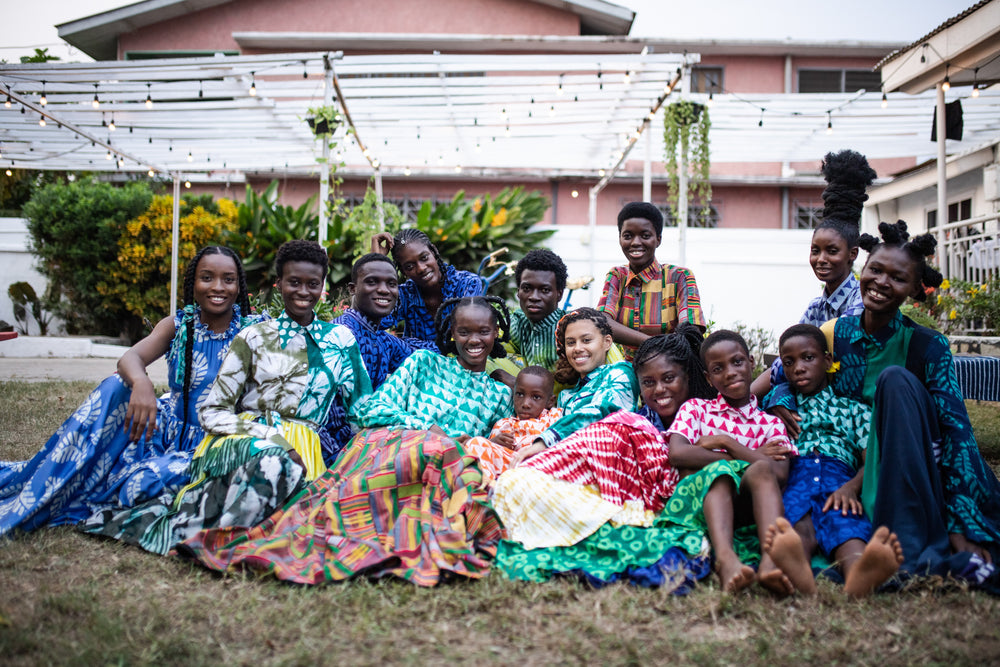Sustainability, Representation & Social Change Drive Abrima Erwiah

Abrima Erwiah knows first-hand what it’s like to be compelled by and interested in contributing to diversity, inclusivity and sustainability. She also knows how easy it is to be overwhelmed by them to the point of complacency.
Erwiah’s journey from her corporate luxury fashion job in Milan to her current role as president of Studio One Eighty Nine, a collection of African-inspired clothing made in Africa, is an example of how breaking down seemingly staggering issues into a series of small decisions and actions can amount to sizable impact.
A few years ago when Erwiah was working at Bottega Veneta in Milan, she was interested in using her job in fashion to make a social impact, so much so that she spent her personal vacations volunteering for organizations that worked toward that goal. The work of Mohammed Yunus inspired her to write manifesto for using fashion as an agent of change. It piqued the interest of actress Rosario Dawson, who invited Erwiah on a trip to the Congo for the opening of City of Joy, an empowerment center for female survivors of rape and violence.
“We just embarked on the craziest journey to get there,” said Erwiah, during the opening remarks of the CFDA’s Fashion Education Summit. “We tried to get the visas and were told, ‘it’s impossible.’ But what we learned is that when we tried, we ended up meeting these people, ambassadors who were like, “’If you want to go to our country to help our women, we’re going to sign your visa on the spot.’”
Erwiah and Dawson went from New York to Philadelphia to London to Kenya to Rwanda to the Congo, and when they finally got there, they met women who had been through horrible atrocities, yet were happy and functioning and resilient. They would make crafts to sell and invest in agriculture and putting their kids in school.
For Erwiah, this was sustainability at its most granular level. “I realized it wasn’t for me to go top down, saying, “I have a great idea,” but it was about going bottom up and listening,” she said. “I realized that it was happening already in marginalized communities all over the world.
“I was so excited by that, I went back to my job in Italy, sat at my desk and did what most people do, which is nothing,” said Erwiah. The universe jumped again, as she put it. After she was sent to Uganda through Kering, she eventually left her corporate job to focus on building Studio One Eighty Nine.
Education is a pillar of Studio One Eighty Nine’s mission, partly inspired by a woman named Ruth, whom Erwiah met in Uganda. Ruth was a cleaning lady who was forced to leave school when a family member was killed by a bomb attack by Al-Shabaab. When Erwiah asked her what she wanted to do, Ruth said fashion. “So often young girls will ended up in situations like that,” said Erwiah. “They don’t go back to school because the family needs the money or because they just feel like they’re too old. But fashion is what got her back in school.”
Sustainability, inclusivity, diversity and social change are complex issues, but Erwiah is able to pinpoint everyday decisions and actions that initiate change. Making a purchase activates an entire supply chain. Education gives people the skills to participate.
It’s also about representation, making people of all different backgrounds and ethnicities visible and central to projects and leadership positions.
When Erwiah was in Ghana, she thought about the difference between herself and women and girls in the villages. A lot of it was about education, networking and access, which leads directly to the history of West African slavery. It was 400 years ago, which, as Erwiah pointed out, is not that long ago in the history of mankind. Its effects are still felt today.
For example, Erwiah’s aunt was the former model Naomi Sims. She moved from Pittsburgh to New York to become a model but was told by the agencies that she was too dark and too African looking. Sims had a photographer take her picture anyway and it ended up in The New York Times. Sims spearheaded the Black is Beautiful movement in the late Sixties. “I’m sure at the time she had no idea how important that movement was,” said Erwiah. “When I’m doing my job and we talk about diversity and inclusion, I’m not blind to see that there’s a lack of representation in the room. The higher you rise, the less women you see, the less different voices you see.”
Erwiah noted that changing that comes down to little everyday decisions. “A lot of times when we talk about history, we over glorify it,” she said. “We make it seem so big. You know, like somebody did this and someone did that. It’s this huge action. So we feel like we can’t do anything.”
Change can come down to an intern pushing your resume to the top of the pile “even though they can’t pronounce your name,” said Erwiah.
The 2019 CFDA Fashion Education Summit was made possible by underwriters Dia & Co and Reebok with additional support from Adrian Cheng/K11 and The Standard.
PHOTO BY BEN ROSSER/BFA.COM




